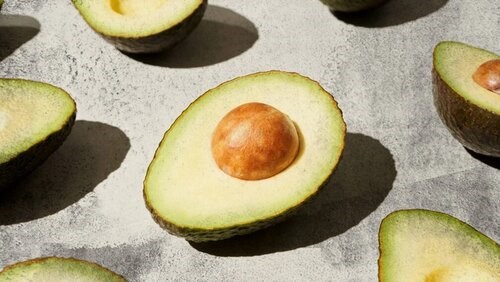
In a balanced diet, fat plays a very important role for the body. Healthy fats also help support brain function, provide energy, and absorb fat-soluble vitamins such as A, D, E, and K.
Accordingly, the 4 types of fatty foods below are recommended by experts at the health website Health to be included in the daily menu.
Olive oil
Olive oil, especially extra virgin olive oil, is an excellent source of monounsaturated fats. Not only is it rich in oleic acid, it is also loaded with powerful antioxidants that help protect the body from free radicals and reduce the risk of chronic diseases.
Several studies have shown that including olive oil in your daily diet reduces the risk of heart disease, high blood pressure and diabetes.
Olive oil can be used for cooking and salad dressing. It is especially important to use pure olive oil, preferably at low temperatures or without cooking to preserve the good nutrients.
Avocado
Avocado is a fruit that contains a lot of healthy fats, especially monounsaturated fats. Avocados are also a source of many other nutrients such as vitamins K, E, C, B5, B6 and potassium. The high fiber content in avocados will help improve digestion and reduce the risk of constipation for those who eat them.
In addition, avocados also have the ability to help reduce bad cholesterol (LDL) and increase good cholesterol (HDL) in the body, thereby reducing the risk of cardiovascular disease. Try to add more avocados to your daily meals to ensure nutrition for your body.
Chia seeds
Chia seeds are a superfood rich in Omega-3 fatty acids, a type of polyunsaturated fat that has many health benefits. Omega-3 also plays an important role in reducing inflammation, supporting brain and heart function. In addition, chia seeds are rich in fiber, protein, calcium and other essential minerals.
Chia seeds can be added to your diet when mixed with yogurt, smoothies or used in baking. Eating chia seeds regularly will help create a feeling of fullness for a long time and effectively control weight.
Salmon
Salmon is one of the best sources of Omega-3 fats. It is rich in eicosapentaenoic acid (EPA) and docosahexaenoic acid (DHA), two types of Omega-3 that are good for heart and brain health and reduce inflammation. Salmon is also rich in protein, vitamin D and minerals like selenium.
Regular consumption of salmon will help reduce the risk of cardiovascular disease, improve brain function and support eye health. Salmon can be processed into many diverse dishes. However, it should be noted that food quality should be ensured when prioritizing the use of fresh fish in food processing.
Source: https://laodong.vn/dinh-duong-am-thuc/4-thuc-pham-cung-cap-chat-beo-lanh-manh-tot-cho-suc-khoe-1359970.ldo











































































































Comment (0)